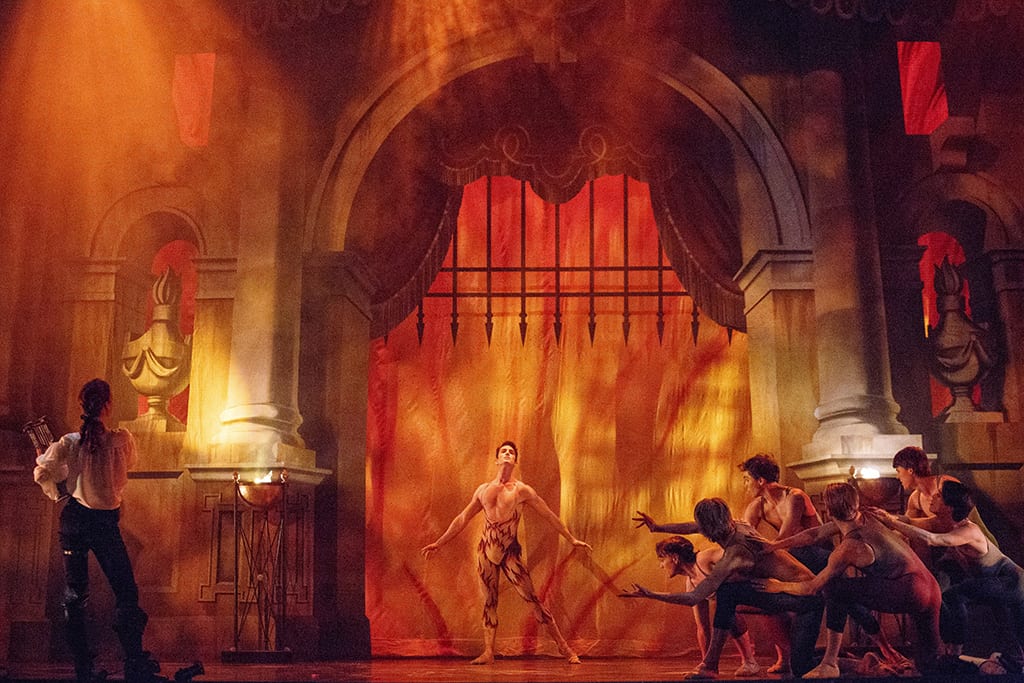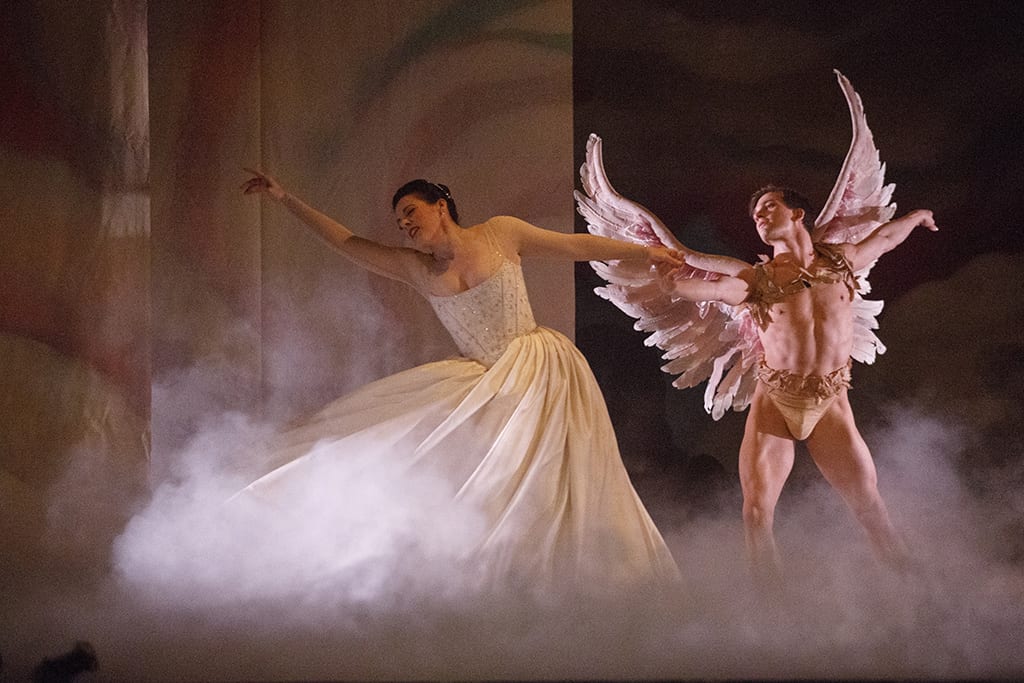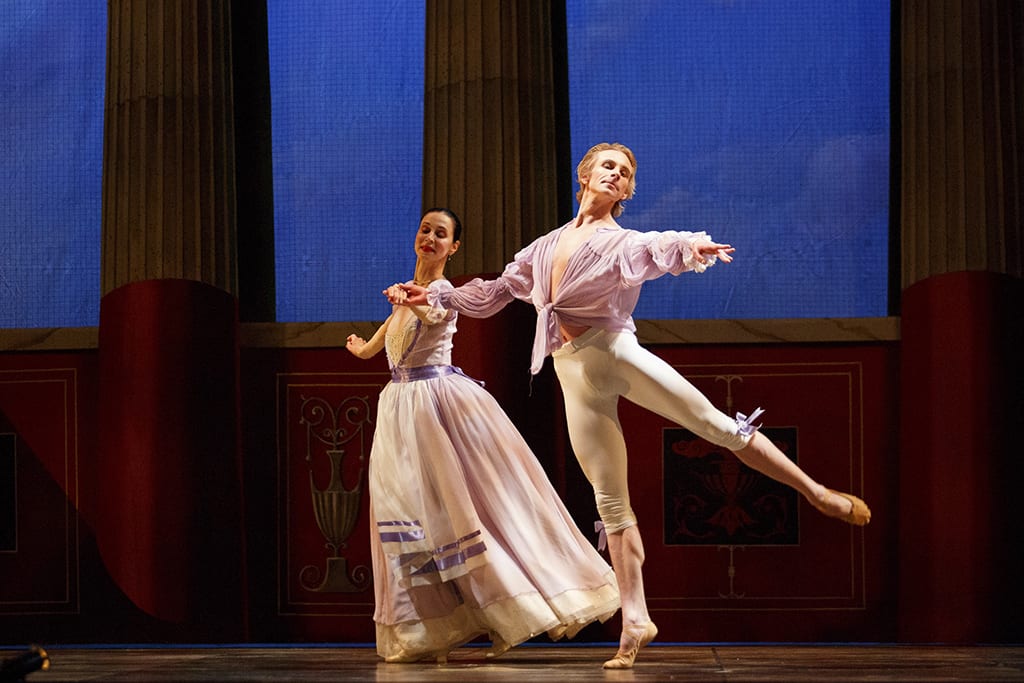Opera Atelier’s production of Gluck’s Orpheus and Eurydice is a delight precisely because it brings back a pristine, classical approach to opera in keeping with Gluck’s desire to capture a more “natural” form of storytelling. Tonight’s performance, which brings back the 1859 revival by Hektor Berlioz of the original opera, eschews the more experimentally opulent set designs that have characterized Opera Atelier’s recent productions, in favor of an aesthetic that foregrounds an elegant minimalism that never loses sight of the emotional power of simplicity.
Gluck’s Orpheus was very much in the vanguard of its time as opera shifted from a highly complex and ornate Baroque aesthetic, to one that favored an exploration of the human psyche through an appeal to natural form. As the fascination with classical myth that is so characteristic of opera seria continued, what better narrative was there to speak of the powerful connection between art, anguish, and the triumph of human love, than the myth of Orpheus and Eurydice? Gluck’s masterpiece was known for its profoundly moving melodic explorations of human emotion. These arias were meant to “sound” like life. This musical sense of verisimilitude is captured perfectly, for example, in the passionate quarrel between Orpheus and Eurydice, when she loses faith in his love because he will not meet her eyes as the journey through the underworld. Consider again, the heart-rending lament by Orpheus when he loses Eurydice to death a second time. These are musical moments that are meant to speak directly to the human spirit in each of us.
Sadly, while tonight’s production appeared to have a deeply nuanced approach to these elements, consistent problems with ensemble among dancers and sketchy intonation in the string section of the orchestra marred what could have been a deeply moving performance. Likewise, in an opera that depends so heavily on its title role, Mireille Lebel’s Orpheus simply did not deliver. Ms. Lebel’s voice seemed to disappear in her lower ranges, and her over-stylized approach to the role suggested a cartoonish exploration of Orpheus’s emotional arc, rather than the complex movement through loss, desire, and transcendence, that this role is all about. Neither was Ms. Lebel able to sound comfortable in the startlingly contemporary modulations of the Berlioz-Saint-Saëns-Viardot cadenza that concludes Act 1.
Ms. Lebel’s absence of theatrical presence was all the more apparent when she shared the stage with the incomparable Peggy Kriha Dye, in the role of Eurydice. When Ms. Dye sings, there is no stage, or set, or orchestra, there is only one gloriously complete moment of song in which every element of opera finds its voice. Meghan Lindsay in the role of Amour, likewise, brings passion, vigor, and a powerhouse of a voice, to a role that could easily be fluffy, but instead becomes sinewy, sexy, and full of erotic mischief.
Tonight’s Orpheus and Eurydice brought back the dances originally omitted by Berlioz, leading to a finale that was playful, elegant, and surprisingly contemporary (to say more would require a spoiler alert). Watching choreographer and Opera Atelier co-director Jeannette Lajeunesse Zingg perform in the corps is a magical reminder of period dance should look like. Ms. Zingg isn’t simply a dancer who interprets music, she is an artist who will reveal whole new vistas of understanding by the turn of a wrist. The day the corps de ballet of Opera Atelier masters the subtlety and artistic nuance that Ms. Zingg has to offer, it will be a great company indeed.



